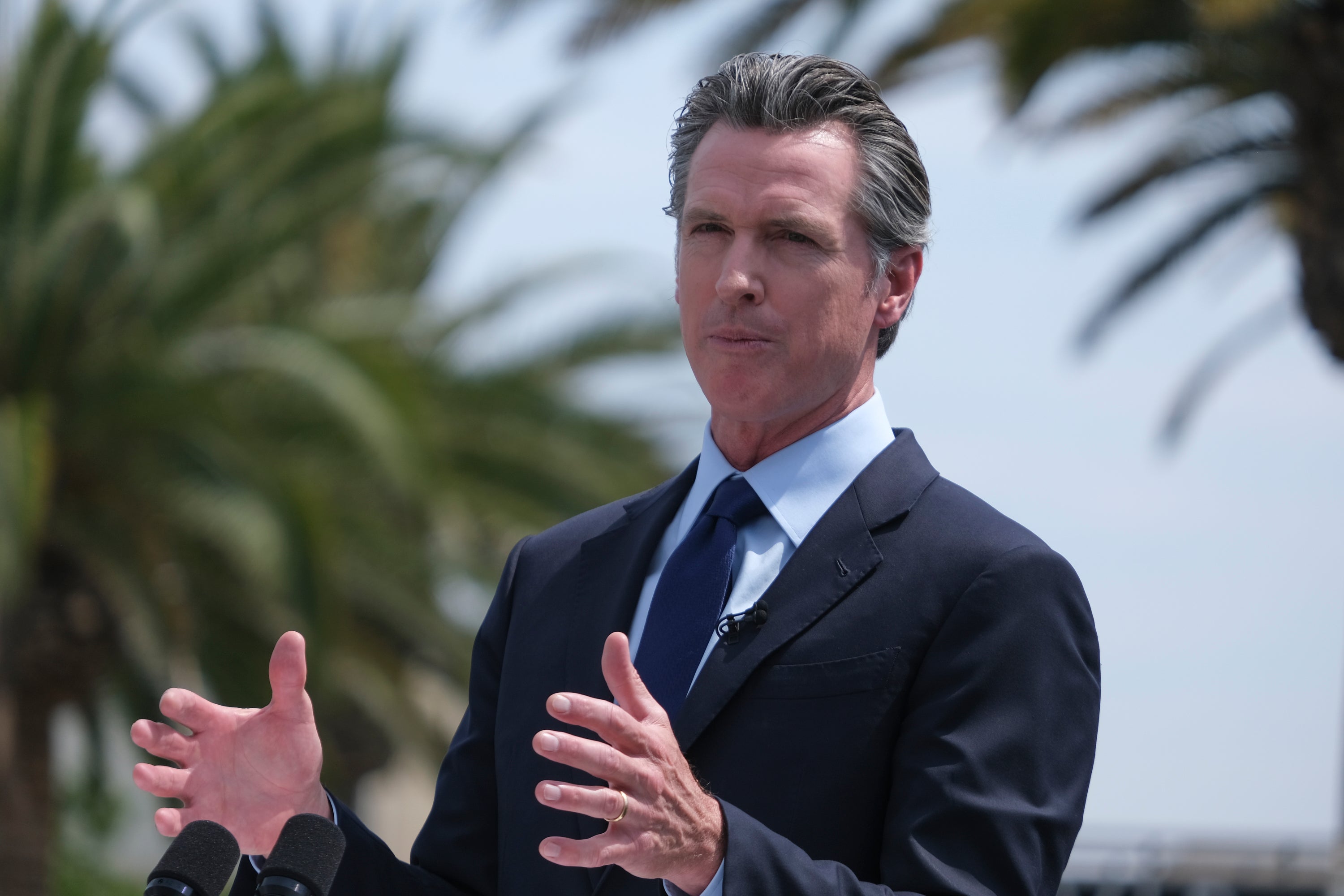California governor sues to get party ID on recall ballot
California Gov. Gavin Newsom is suing the state's top elections official to ensure the word “Democratic" appears next to his name on the ballot for a recall election

Your support helps us to tell the story
From reproductive rights to climate change to Big Tech, The Independent is on the ground when the story is developing. Whether it's investigating the financials of Elon Musk's pro-Trump PAC or producing our latest documentary, 'The A Word', which shines a light on the American women fighting for reproductive rights, we know how important it is to parse out the facts from the messaging.
At such a critical moment in US history, we need reporters on the ground. Your donation allows us to keep sending journalists to speak to both sides of the story.
The Independent is trusted by Americans across the entire political spectrum. And unlike many other quality news outlets, we choose not to lock Americans out of our reporting and analysis with paywalls. We believe quality journalism should be available to everyone, paid for by those who can afford it.
Your support makes all the difference.California Gov. Gavin Newsom is suing the state elections chief he appointed in an effort to get his party affiliation to appear next to his name on the ballot for a recall election that will determine if the first-term Democrat is forced out of office.
The lawsuit against Secretary of State Shirley Weber, a fellow Democrat, came after Newsom's campaign failed to file the appropriate paperwork.
Newsom was supposed to indicate whether he wanted his party preference on the ballot back in February 2020, when he first responded to the recall petition. That requirement was part of a new law he signed that took effect in January 2020. In the past, politicians targeted in recalls weren't allowed to have their party next to their names.
“Due to an inadvertent but good faith mistake on the part of his elections attorney, Newsom timely filed his answer but did not include his party-preference election," reads the lawsuit, which was first reported Monday by Courthouse News Service.
Weber's office said it has a duty to accept timely filed documents and anything after the deadline “requires judicial resolution."
The recall election, driven by criticism of Newsom's handling of the coronavirus pandemic, is likely to be held in early fall. The two-part ballot will first ask voters if they want to remove Newsom from office and, if so, who should replace him. The answers to the second question are only counted if more than 50% of people say yes to the first.
Newsom's lawsuit argues that Weber should accept his updated notification of his party preference because the recall hasn't been certified, an election date hasn't been set, his opponents haven't filed their own paperwork and the ballots aren't yet designed.
When Newsom responded to the recall petition, few believed it would generate enough signatures reach the ballot. But with growing frustration over his on-again, off-again shutdown orders during the pandemic, support for the recall gained momentum and ultimately more than 1.7 million valid signatures were gathered.
A key event for Newsom's critics was his decision to attend a birthday party for a lobbyist friend at a posh San Francisco Bay Area restaurant when he was telling people to stay home, socially distance and wear masks. Photos showed him unmasked and seated close to other guests.
Republicans seeking to unseat Newsom include former San Diego Mayor Kevin Faulconer, businessman and unsuccessful 2018 gubernatorial candidate John Cox former U.S. Rep. Doug Ose and reality TV personality Caitlyn Jenner
Though many voters know Newsom is a Democrat, the paperwork error is an embarrassing mistake for his campaign, which last year also failed to challenge a court ruling that gave recall proponents more time to collect signatures.
In late February 2020, political neophyte Orrin Heatlie filed a recall petition against Newsom, one of about a half-dozen that had been filed at that point. Newsom was required to respond to the petition, and under the new law, he was supposed to say if he wanted his party preference on the ballot. His campaign only realized its mistake this month and on June 19 filed a notice of his party preference with Weber, but she declined to accept it.
Newsom's lawsuit asks for a ruling by July 12, which indicates his campaign does not expect an election date to be set before that.
In the past, those targeted in a recall didn’t have the option to list their party preference. Democrats in the state Legislature voted to change that in 2019 after a state senator was recalled, arguing it gives voters important information.
On Monday, Newsom signed a law that changes the recall rules in an effort to speed up the election. It essentially bypasses a legislative review of costs associated with the recall, because lawmakers already agreed to give counties $215 million to administer the election.